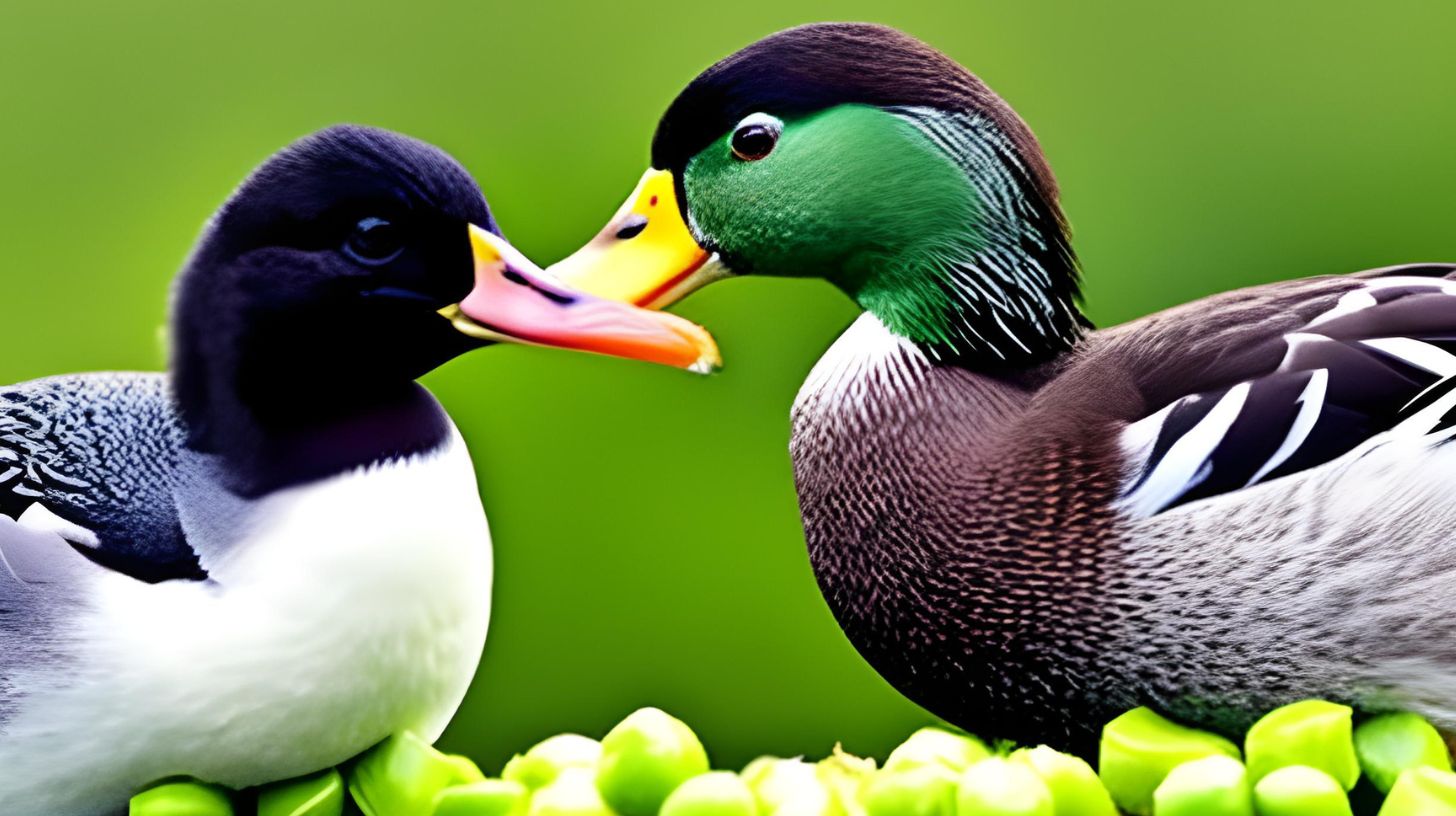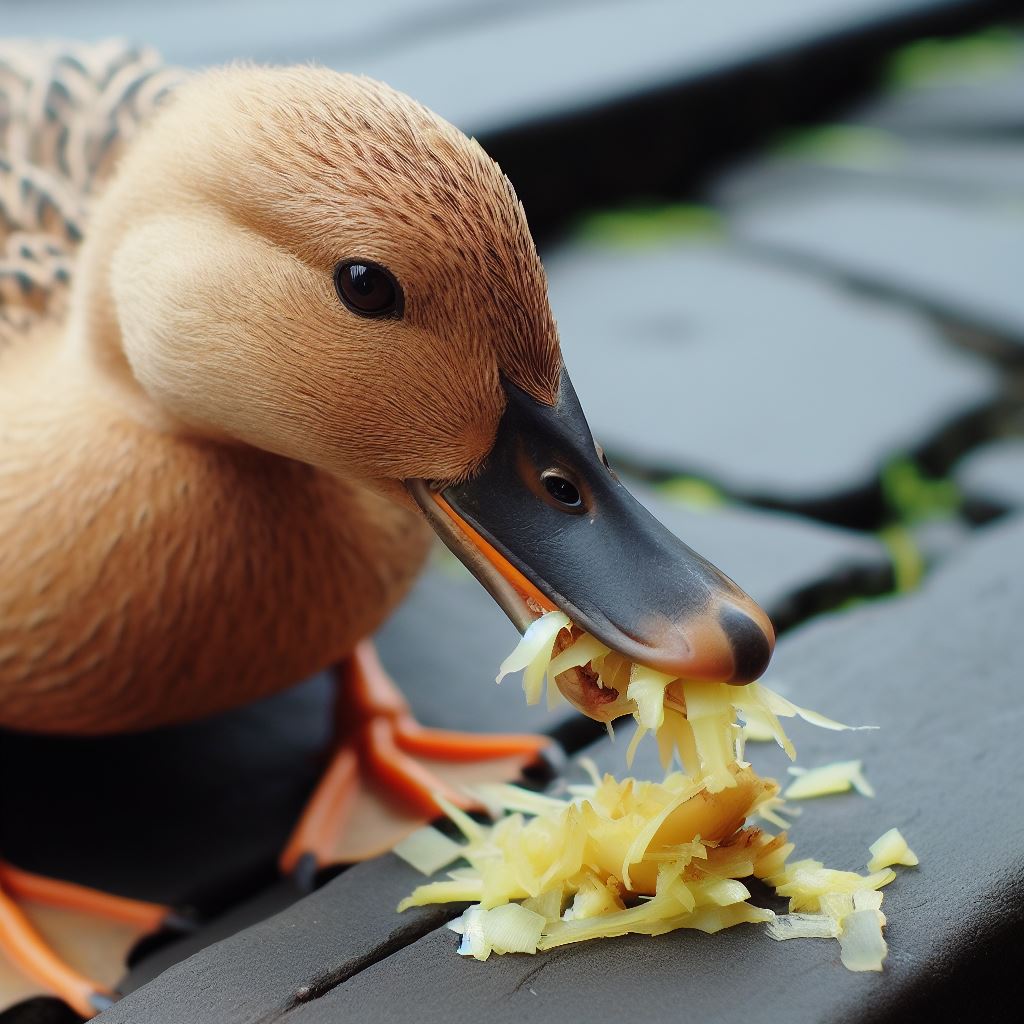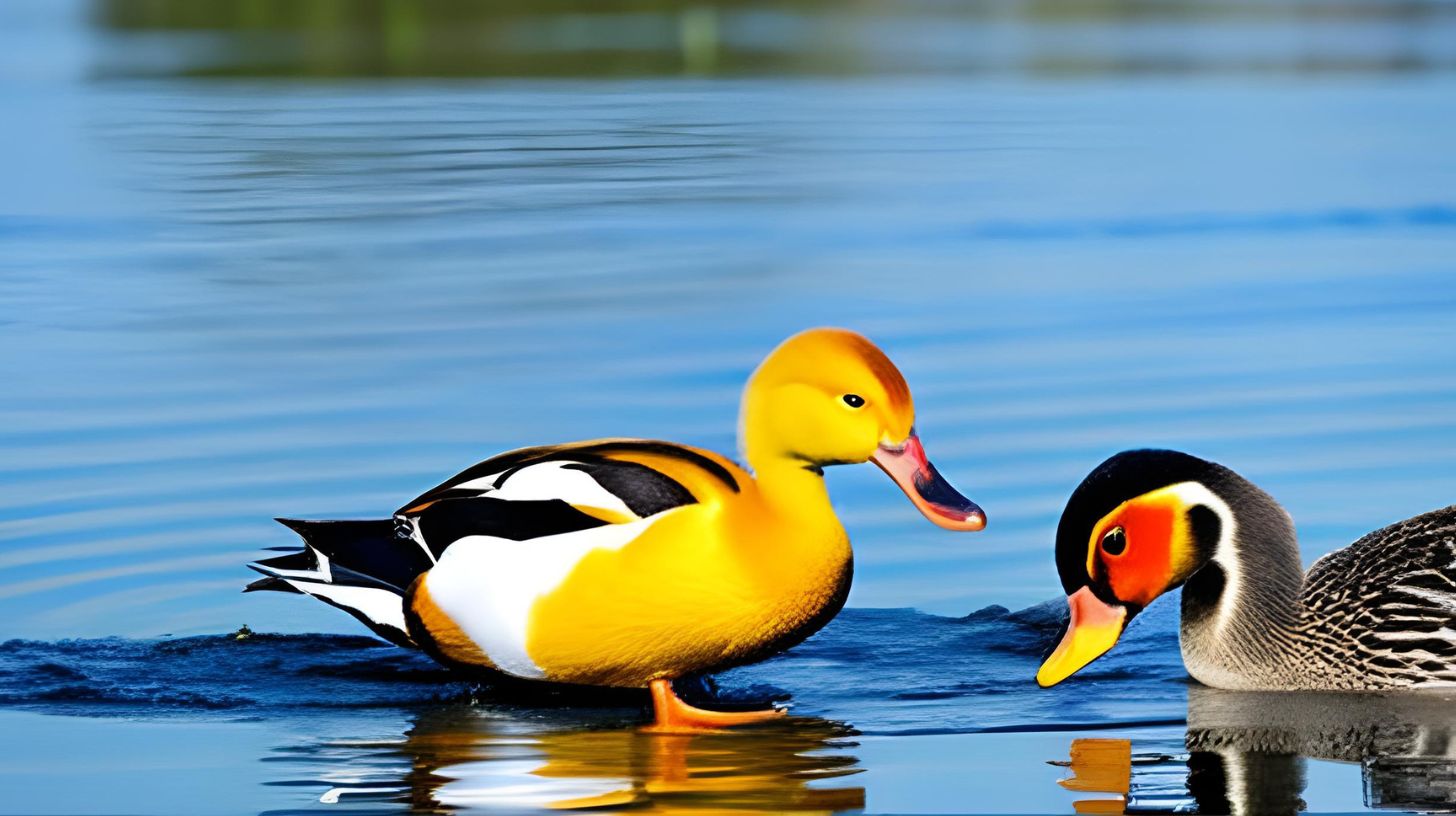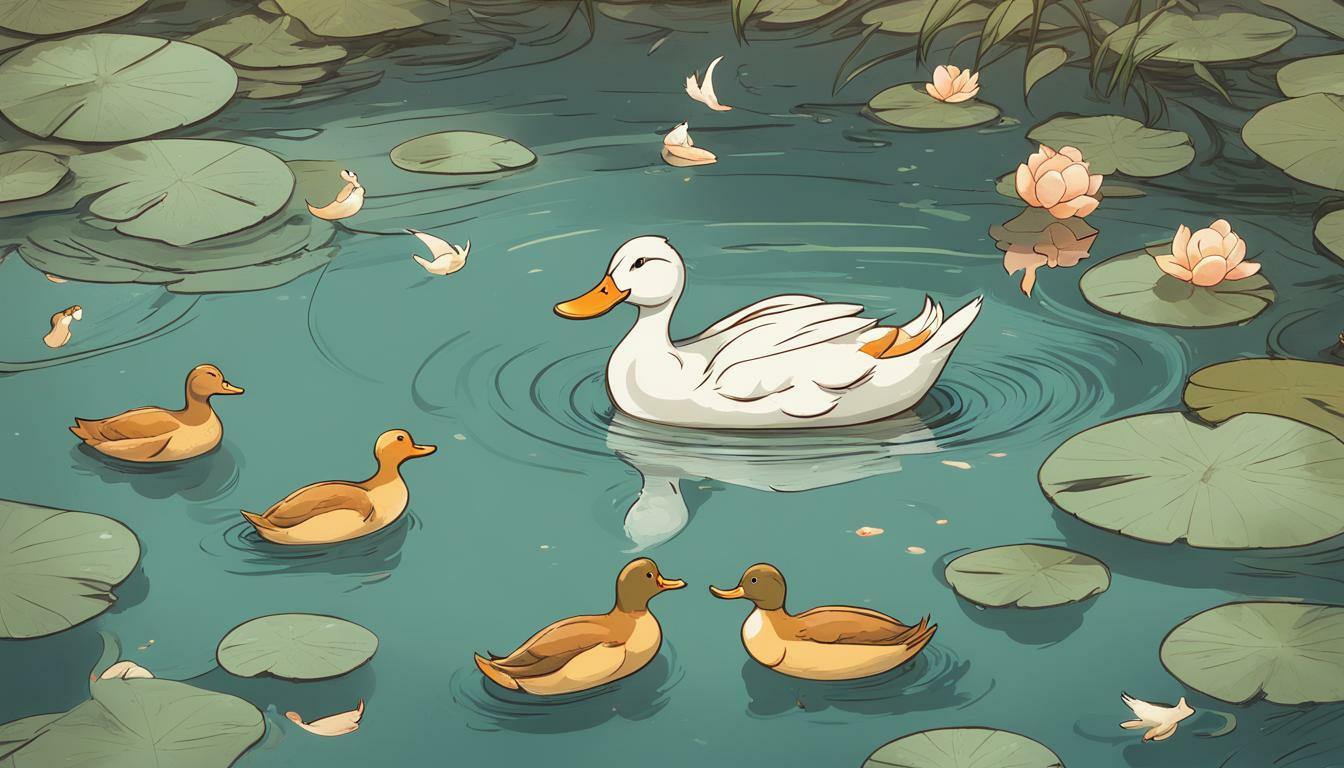Do Ducks Like Peas? Explore the Duck’s Diet Preferences

Table of content:
Have you ever wondered if you can feed peas to ducks? Whether you’re curious about the diets of wild ducks or looking for healthy treat options for your pet ducks, this guide will cover everything you need to know about feeding peas to ducks.
Peas are a nutritious vegetable for humans, but can ducks eat them too? The short answer is yes! Peas contain important vitamins, minerals, and nutrients that can benefit ducks. Both wild and domesticated ducks enjoy peas. However, there are some things to consider before tossing handfuls of peas to ducks at the park or adding them to your pet’s diet.
What Types of Peas Can Ducks Eat?
Ducks can eat all varieties of peas, including:
Green Peas
The most common type of pea, green peas are a nutritious choice. Make sure any frozen or canned green peas you feed to ducks don’t contain added salt, preservatives, or other flavorings.
Snow Peas
Snow peas have edible pods that make them a crunchy, fiber-filled treat.
Sugar Snap Peas
Similar to snow peas, sugar snap peas offer a sweet, crispy pod perfect for foraging ducks.
Split Peas
Split peas are dried green peas that have been divided. While not ideal whole due to their dry texture, they can be soaked and incorporated into duck feed.
Pea Shoots
The tendrils and leaves of the pea plant are also safe and nutritious for ducks to eat.
Pea Sprouts
Sprouted peas have enhanced nutritional benefits. They can be grown easily at home and added to your duck’s diet.
Now that we’ve covered the types of peas ducks can enjoy, let’s look at why peas are so good for ducks in the first place.
Nutritional Benefits of Peas for Ducks
Peas provide ducks with essential vitamins, minerals, and nutrients:
Protein
Peas contain over 8 grams of protein per cup. Protein is crucial for ducklings and molting ducks.
Vitamin A
Peas are high in vitamin A to support ducks’ immune systems and vision.
Vitamin K
Vitamin K helps ducks form blood clots and maintains healthy bones.
Thiamine
Also known as vitamin B1, thiamine keeps ducks’ digestive systems healthy.
Fiber
Peas offer insoluble fiber that promotes digestion in ducks.
Antioxidants
From vitamin C to polyphenols, peas provide antioxidants to remove harmful free radicals from ducks’ bodies.
Phytonutrients
Phytonutrients like coumestrol support duck health in a variety of ways.
So peas can clearly provide important nutrients for ducks. But how should you actually feed them? Let’s go over some tips.
How to Feed Peas to Wild Ducks
If you want to supplement the diets of wild ducks visiting your yard or a local park, keep these tips in mind:
- Feed peas in their raw, fresh form whenever possible. Wild ducks will benefit the most from peas’ vitamins and minerals this way.
- Cooked peas are still OK to feed in moderation, but avoid added salt, butter, or other oils.
- Chopped peas are easier for ducks to eat than whole peas.
- Toss peas into shallow water for ducks to forage. Scatter some nearby on land as well.
- Start with small amounts of peas and gradually increase to avoid shocking ducks’ digestive systems. About 1-2 cups of peas per day for a small flock is a good starting point.
- Be mindful of feeding times and amounts. Offer peas once or twice daily and avoid leaving large amounts that could spoil.
- Ensure peas do not become the ducks’ only food source. Offer peas as a supplement but let wild ducks seek out diverse natural foods, too.
Now let’s discuss how to feed peas to domesticated pet ducks.
Tips for Feeding Peas to Pet Ducks
Peas make a nutritious addition to well-balanced diets for pet ducks. Here are some tips on incorporating peas into your flock’s feed:
- Fresh or thawed frozen peas can be fed to pet ducks raw. Chop or mash them for easier eating.
- Mix peas into commercial duck feed pellets. The moisture will soften the pellets.
- Sprout peas to provide living nutrients, vitamins, and minerals.
- Create nutritious homemade duck feed with peas, whole grains, leafy greens, and fish or insects.
- Use pea shoots and tendrils straight from your garden or in homemade duck food.
- Soak split peas overnight before boiling and mashing them into a soft consistency to mix into duck feed.
- Feed peas in moderation as treats. Peas should not exceed 10% of a duck’s overall diet.
- Provide essential fatty acids from healthy oils, insects, or oily fish when feeding peas. Peas are low in fat.
- Remove any uneaten peas within an hour to prevent spoilage and bug attraction.
As long as you follow proper feeding guidelines, peas can be an excellent addition to pet duck diets. But there are some potential downsides to consider as well.
Potential Concerns with Feeding Peas to Ducks
While peas are a healthy and beneficial snack for ducks in most cases, there are a few potential concerns:
Anti-Nutritional Factors
Peas contain anti-nutritional factors like phytic acid that impair mineral absorption. Feeding peas in moderation reduces this risk.
Diet Imbalances
Overfeeding peas could throw off the ideal protein to carbohydrate ratio in ducks’ diets. Vary their feed and treats.
Digestive Upset
Sudden large amounts of peas could cause loose stools or diarrhea in ducks. Introduce peas gradually.
Spoiled Peas
Fresh or thawed peas left uneaten can quickly spoil in warm temperatures and harbor bacteria. Promptly remove unused peas.
Pesticides
Peas grown with pesticides could harm ducks. Purchase organic or grow your own peas to avoid this.
Choking Hazards
Whole dry peas may pose a choking risk for young ducklings. Chop or mash peas to be safe.
Allergies
Some rare ducks may be allergic or intolerant to peas and other legumes. Discontinue feeding if any signs of allergies arise.
As long as you feed peas properly and monitor your ducks, the benefits appear to far outweigh the minimal risks.
Conclusion
Peas can be a nutritious and appreciated treat for both wild and pet ducks. Their vitamin, mineral, fiber, protein, and antioxidant content offers health benefits for ducks of all kinds. Follow the proper feeding guidelines covered in this article, and peas can be a great addition to any duck’s diet. Just be sure to vary their feed and introduce dietary changes slowly.
Hopefully this guide gave you a comprehensive overview of feeding peas to ducks. Offer your feathered friends some peas and see how they enjoy this crunchy, tasty snack! And be sure to monitor how your ducks react to any new foods. With some care and consideration, those peas popping fresh from your garden or the freezer will go to good use enhancing your ducks’ diets.
Welcome. I’m Adreena Shanum, the proud owner of this website, and I am incredibly passionate about animals, especially poultry. I founded adreenapets.com as a labor of love, stemming from my desire to share my knowledge and experiences with poultry enthusiasts worldwide.




